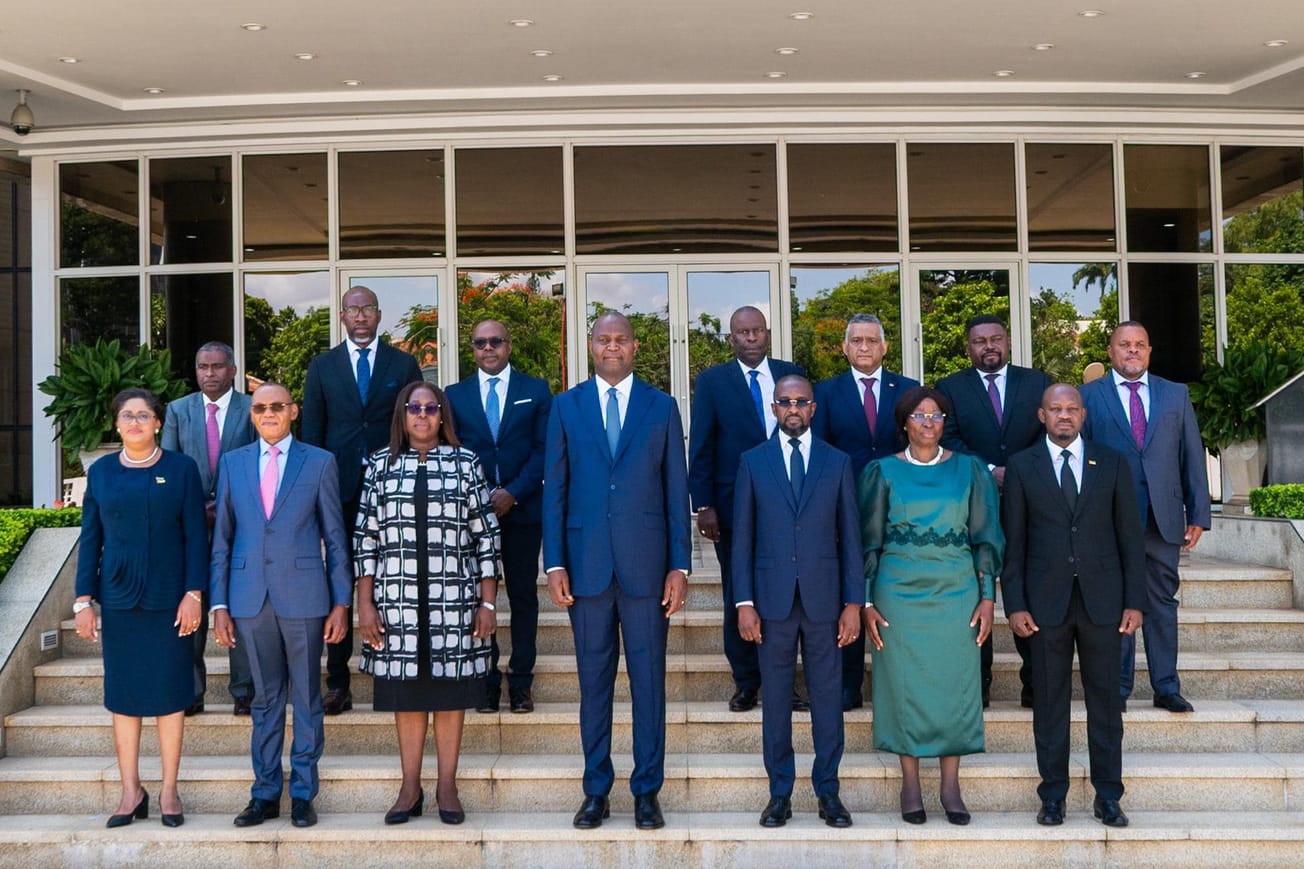In the first meeting of Mozambique’s new Council of Ministers on Saturday 18 January, President Daniel Chapo told his new cabinet that he expected them to attend meetings on time and to prioritise their attendance at the meetings. He also told them to work with their existing resources and avoid making staffing changes in their departments.
It is apparent from this and other signs that Chapo wants to encourage a culture of public service in his government (the instruction not to bring in new staff may well be intended to curb the rampant nepotism and cronyism in Mozambican public administration).
Chapo has reorganised the machinery of government in his first presidential decree, abolishing 11 ministries and three state secretariats, and creating nine new ones in their place. This, he claims, will allow the government to save MZN17bn ($268m) on administrative costs, which he wants to redirect to areas like education, healthcare and infrastructure.
The president has been repeating the phrase “work differently to achieve different results”, and he clearly wants to send the message that his government will be both leaner and more effective at delivering in the national interest, to combat the perception that his ruling Frelimo party is only interested in enriching its members.
Chapo appointed most of his new ministers last week, though six of the positions below remain to be filled. The Prime Minister is Maria Levi. The list of ministers appointed so far, and their portfolios, is as follows:
The reorganisation reduces the number of ministries from 20 to 18 (not counting the president’s office, the casa civil, which is also headed by a minister). It eliminates three national state secretariats, while maintaining the provincial state secretaries. However, to end the conflicts and overlap resulting from provincial secretaries and provincial governors both being responsible for administering the provinces, the former are being reduced to an oversight role, with most executive functions being reserved for governors.
A new era or recycling the past?
Although the changes to ministries may look like a fresh start, several of the “new” departments are actually being revived from before the administration of previous president Filipe Nyusi. Despite Chapo’s avowed wish to reduce the cost of government, the overall number of ministries is only being reduced by two. The promised cost savings of around $268m are not going to make a huge difference to the state budget: by comparison, the World Bank is providing $400 million of grant funding to repair one-third of the north-south N1 highway.
Nor is it clear where those savings are to come from: redundancies, early retirement, hiring freezes, cuts to overtime and subsidies, or efficiencies in operations or procurement (which is to be streamlined through a new central procurement office).
Doing more with less
Chapo is expecting more from his ministers and from officials, but they will have to deliver better public services while also going through an administrative reorganisation, which may prove disruptive. Past reforms, such as decrees reorganising administrative structures, have faced problems or have never actually been implemented. Chapo’s instruction to ministers to work with the staff they have, and avoid bringing in new staff, may curb nepotism, but it may also restrict their ability to drive change. He has directed ministers to focus on their first 100 days of governance, prioritising public welfare and systemic reforms - but the president himself so far does not seem to have a plan for those first 100 days.
There are some clear long term aims, to modernise the country using digital technology and to promote inclusive economic development. The reorganisation of departments reflects this. However, past attempts to drive change by creating new government institutions, such as the secretariats for food security and nutrition and for fighting HIV and AIDS, have been disappointing.
Chapo will be hoping that his government, which has to contend with a great deal of political opposition following the disputed and fraud-stained elections, will do better than its predecessors.









